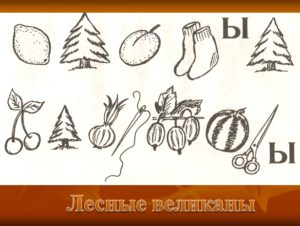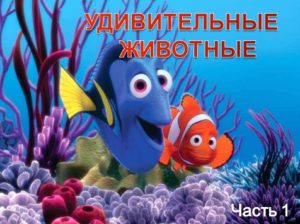geography teacher
IU "Lyceum-boarding school (school for gifted children)"
Buinska RT

Goals:to expand children’s understanding of environmental laws; to promote patriotism and humane attitude to native nature; to form a negative moral assessment of violations in the field of nature, a negative attitude to thoughtless, irresponsible attitude to nature; to encourage children to participate in environmental activities, to promote environmental ideas.
Registration:
(a) on the blackboard, epigraph: Take care of this land, this water,
Even a little bit of grass.
Take care of all the animals within nature.
Only kill the beasts inside you!
Evtushenko
(b) The Four Laws of Ecology
1. It's all about everything.
2. Everything has to go somewhere.
3. Nothing comes for nothing.
4. Nature knows best.
Class hour plan:
- Opening remarks.
- The problem is, “Do we need mosquitoes?”
- Interactive conversation.
- Information block "Laws of ecology".
- Virtual environmental raid “What laws have been broken?”
- Working in groups “Conversation on behalf of nature”.
- “Kill the beasts within you.”
- Taking stock.
Class hour
1. Opening remarks
Chief of staff. The theme of our class hour is “Nature forgives no mistakes.” It is no secret that our world is on the verge of an ecological catastrophe. The state of nature begins to threaten the existence of man. For violation of the laws of the biosphere, a person is already paying for his health. But the worst thing is that future generations will have to pay for it. The only salvation is to hear the voice of nature, to obey its laws, to abandon the consumer attitude to the Earth and its riches. The only salvation is in ecological culture.
2. The problem is, “Do we need mosquitoes?”
Chief of staff. One familiar fisherman for the rest of his life remembered the lesson of ecological culture, which was given to him by an old Even, a resident of the Kolyma taiga. They fished on the banks of the river, but there were clouds of mosquitoes in the taiga. “Eh, there would be a scientist who would destroy all this “evilness”!” cried the fisherman in his heart. Ewen, who sat next to him without saying a word, took a newly caught gray and cut his thick abdomen with a knife. The stomach of the fish was filled with mosquitoes.
3. Interactive conversation.
Chief executive: What environmental lesson did the old Even fisherman learn?
Example responses from children:
- If you kill mosquitoes, the fish that eat them will disappear. If the fish disappear, people will starve.
- In nature, everything is in balance, everything is connected.
- Nature is very intelligent. It regulates the number of living organisms.
Chief of staff. Yes, everything in nature is interconnected, this relationship is studied by ecology. Can you give examples of this relationship?
Example responses by children:
The Aral Sea, which became shallow and dried up because a lot of water was taken from it to water cotton.
- In China, millions of sparrows were destroyed, after which a huge number of pests were divorced. And the Chinese started buying sparrows in other countries.
- In Norway destroyed birds of prey to preserve partridges. But the partridges soon died from the epidemic. It turns out that hawks and owls ate sick birds, acted as orderlies, and therefore prevented epidemics.
4. Information block "Laws of ecology".
Chief of staff. Nature punishes those who do not obey its laws. But there are only four of these laws. They're so easy to remember!
So the four laws of ecology. They were formulated by the American scientist Barry Commoner. We wrote these laws down on the blackboard.
The First Law: “Everything is connected to everything.” We have already seen this law in our examples.
The second law says, “Everything has to go somewhere.” Nothing disappears without a trace, including garbage that is buried or burned. From one substance arises another, while poisoning the air, changing the climate, sick people.
The Third Law: “Nothing is given for nothing.” Everything we gain by taking from nature, it will take from us in other ways. Sparrows were destroyed - pests ate the entire crop, shot birds of prey - partridges disappeared. You have to pay for everything.
The fourth law is “Nature knows best.” Man, presumptuously wishing to "improve" nature, disturbs the course of natural processes. Nature has no waste: for any organic matter in nature, there is an enzyme that can decompose this substance. But man has created and continues to create a huge number of chemicals and materials that get into the natural environment, do not decompose, accumulate and pollute it.
Environmental culture is about knowing and implementing these laws.
5. A virtual environmental raid. "What laws have been broken?"
A great leader. Now we're going to raid the streets of our city and see if its residents are complying with environmental laws. Here comes the first intruder. The plant dumped wastewater contaminated with toxic substances into the river. What is the threat to the water and the inhabitants of the city? What environmental law has been broken? And how to act correctly in this situation?
Example responses by children:
- These substances will surely settle on plants and algae living in the river. Plants and algae will get into the stomach of herbivorous fish along with poisonous substances. If a herbivorous fish is eaten by a predator, toxic substances will already migrate into its body. The latter can be hooked by a person, and then a person will legally receive food poisoning.
- The first and second environmental laws were violated.
- We need to pass industrial waste through cleaning.
A great leader. Keep moving. It's getting hard to breathe! Yeah, it's the janitors who burn the foliage to keep it out of town. What is it that threatens us, and what environmental law do janitors violate?
Example responses from children:
- The leaves of urban trees accumulate a huge amount of toxic substances: from cars, factories. It has to be destroyed.
- A typical violation of the second law: wipers think that the leaves will burn and simply disappear, but this is not true: the leaves, burning, poison the air, causing diseases of people.
- Leaves are strictly forbidden to burn, they must be taken out of the city.
A great leader. In the flower shop we buy a package of fertilizer "biogumus". The packaging says that this fertilizer was made from ordinary garbage, and it was produced by an extraordinary worm bred by California scientists! Interesting information! Keep reading. These worms devour any organic material: sawdust, paper, cardboard, rotten vegetables, etc., turning all this into an extremely valuable organic fertilizer - biohumus. But polyethylene, metal and glass worm does not eat, he just does not digest. The Californian is surprisingly voracious: he eats twice as much per day as he weighs, and he is not whimsical and feels great at temperatures from +4 to +40 degrees. This worker has lived for 16 years.
Do you think the people who created this worm violated the laws of ecology or not?
Exemplary responses from children.
- It is, on the contrary, strict enforcement of environmental laws.
- The second law is: “Everything has to go somewhere.” Garbage does not turn into toxic waste, but gives food to the worm and becomes a valuable fertilizer.
- The fourth law is: “Nature knows best.” Worm is a natural creature, he knows how to better recycle waste.
A great leader. We went out of town, to the village. Once there was a swamp, merrily croaked frogs, clouds swirled mosquitoes. But the summer residents decided to get rid of the swamp and began to drain it. What impact can this have on forests and rivers? What laws do people violate to improve nature?
Example responses from children:
—Under no circumstances can you do that! Drying the swamp, you can lose the river, and the forest will disappear!
- The fourth law of nature is violated: “Nature knows best.” If this is the place where nature has created a swamp, this is where it should be.
- For ecological balance in this place is very necessary and swamp, and frogs, and mosquitoes, otherwise there will be a drought.
A great leader. Well, I see you've mastered the laws of ecology pretty well. This is one of the signs of ecological culture.
6. Working in groups. "An Appeal on behalf of Nature."
A great leader. Today we learned the laws of ecology. Unfortunately, many people do not know these laws and pollute the Earth, disturb the fragile ecological balance in nature. If Nature could speak, what would she say to her children? Let's write letters on behalf of nature.
The first group will write an appeal to businessmen, owners of plants and factories.
The second group will write to the military.
The third group will prepare an appeal to scientists.
The fourth group will address farmers and peasants.
The fifth group will write to sailors and fishermen.
The sixth group will write a letter to our students.
Music is turned on, within 5 minutes children write appeals.
It's time to read our appeals. I invite representatives of groups to the board.
Representatives of groups come to the board and read appeals.
Thank you, I hope your words will be heard.
7. “Kill the beasts within you.”
A great leader. Today we are talking about environmental laws. Knowledge and implementation of these laws is the most important sign of ecological culture. But that's not enough. You also need an ecology of the soul. Read the epigraph for our class hour. These are the lines of the poet Yevgeny Yevtushenko (reads).
What is the poet talking about here?
Example responses from children:
- That we should protect nature.
- That you can't kill animals.
- That you should love the smallest bug and bug.
A great leader. The poet calls for killing the beasts inside. What are these animals?
Example responses from children:
- It is greed, envy, stupidity, malice, cunning, cowardice, flattery, meanness, soullessness, boastfulness, pride, etc.
- It's all the bad, black, wild things in man.
- This is what prevents a person from loving another person and the whole world.
A great leader. I think you're all right. The beasts within us are bad qualities of character that prevent us from loving another person, loving the world, loving nature.
And we must constantly exterminate these beasts in our hearts. Then our environmental knowledge and skills will benefit nature.
8. Summary (reflection).
A great leader. What do you remember from today's conversation? Do you consider yourself an ecologically cultural person?
Example responses from children:
- I remember the story of a worm that makes biohumus.
- I remember the story of Even, who cut a fish and put mosquitoes in it.
- I'm not cultured enough, there's a lot of animals inside me.
- Culture is a long way off, but we know what to do.
- It is easy to know the laws and to obey them, the hardest thing is to be kind.
{module Google_kvadrat}



